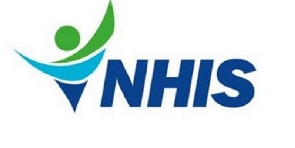The National Health Insurance Authority (NHIA) has announced its intentions to ensure that all institutions under the Private Health Insurance Schemes (PHIS) are rightly registered, licensed and have a capital adequacy ratio not less than 150%.
The NHIA said this was in place to ensure that Ghana does not get to the point of requiring a clean-up in the private health insurance sector years down the road.
The NHIA declared its commitment to vigorously supervise the PHIS in order to improve financial sustainability and sovereignty, protect the interest of clients, and heighten the oversight and regulatory responsibilities of the NHIA.
This was announced when the authority addressed participants at a forum spearheaded by the PHIS Directorate of the NHIA in Accra.
Speaking under the theme ‘Growing the private health insurance industry for the future’, Mr Yaw Adu-Gyamfi, Board Chair of the NHIA, said the authority had been proactive in terms of private health insurance and would conduct constant monitoring and evaluation to ensure the sustainability of private health insurance in Ghana.
The forum saw several stakeholders engaging in ground-breaking discussions to understand the growing need for private health insurance and to provide solutions to meet health care needs in Ghana.
Mr Adu-Gyamfi said as regulators of the PHIS, the NHIA would ensure that everyone had access to essential medicines and vaccines, especially in pandemic times.
"We will ensure that everyone has access to affordable quality healthcare in order to achieve Universal Health Coverage (UHC)", he stressed.
He noted that the provision of health insurance was one of the most viable and sustainable options available to countries to finance the ever-increasing cost of healthcare in Africa.
Mr Adu-Gyamfi said the private sector participation, through the creation of private health insurance markets, had played a recognisable role in Ghana's journey towards the achievement of UHC.
"Private health insurance is proving to be the bedrock for the healthcare provision among corporate Ghana. The private health insurance market is voluntary in nature both on the side of providers and consumers of the service and generally the insurance market," he explained.
Mr Adu-Gyamfi said even though the private health insurance industry had its casualties through the years of self-regulation, the NHIA had intervened to develop regulatory frameworks to serve the public goal of equitable access.
He commended the laudable role of the private health insurance directorate in ensuring the growth and sustainability of the PHIS over the years.
The board chair said the authority would ensure that appropriate institutions with adequate financial capacity and the right mix of human and technical capacity were involved in the sale and provision of health insurance in Ghana.
He urged providers to respect all contracts signed with the PHIS and ensure that they provided clients with the actual benefits package agreed upon.
"We want people to know that private health insurance plays a very important role in our nation, and we will all endeavour to make sure that during these times that we are trumpeting the good of the NHIS, everyone will register with the NHIS and also be part of the PHIS so we leave no one behind," Mr Adu-Gyamfi stated.
Dr Lydia Dsane-Selby, Chief Executive Officer (CEO) of the NHIA, said the PHIS had played an important role in Ghana's health system over the years. However, she noted that its total membership was less than 1% of the nation.
Thus, she noted that the NHIA will engage more people and enrol them in the scheme.
"This engagement would help us provide better healthcare service for the public and enrol more members onto the scheme", she stressed.
The PHIS perspective
Mrs Nancy Ampah, CEO, NMH Nationwide Medical Insurance Co. Ltd, noted that rising healthcare cost gave rise to medical inflation, which is reflected in premium prices.
"The premiums are the only way we can vary our offer to address medical inflation. This results in very high premiums, which creates a financial barrier and provides access to only the few who can afford the ability to pay the economic balance type premiums", she explained.
Mrs Ampah indicated that even though the citizenry did not have much disposable income, they needed to be educated about the relevance of health insurance as a means of financing healthcare.
"Consider health insurance as an investment and not a cost", she said.
She noted that technology must be applied in the acquisition, distribution and collecting of premiums as an investment.
Thus, she urged various operators to leverage technology and eliminate business deficits and inefficiencies to ensure quality healthcare.
The forum formed part of the NHIS Week celebration, which commenced on November 2, with the launch of the integrated Ghana Card and the NHIS Card by Dr Mahamudu Bawumia, Vice-President of the country.
General News of Tuesday, 17 November 2020
Source: thefinderonline.com













